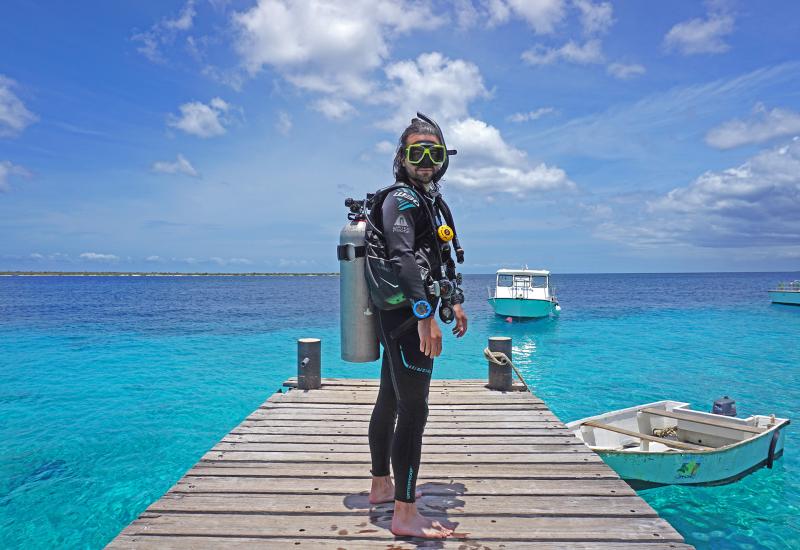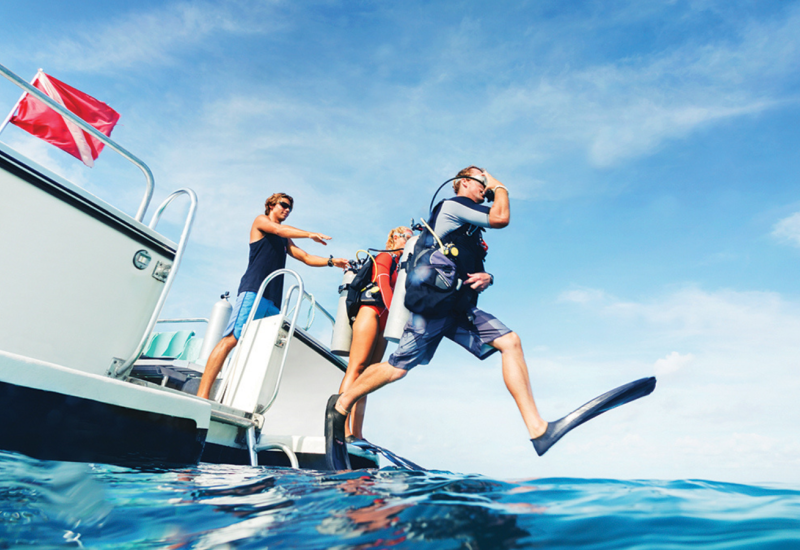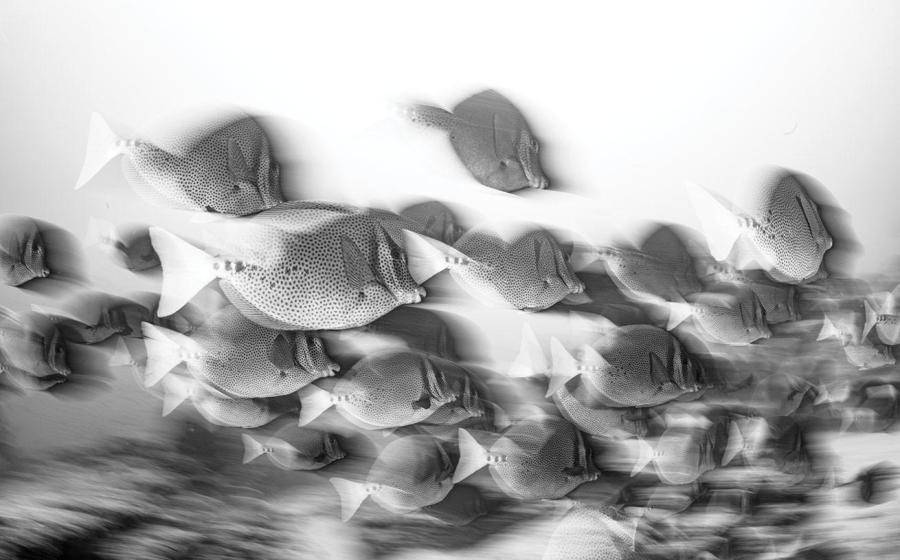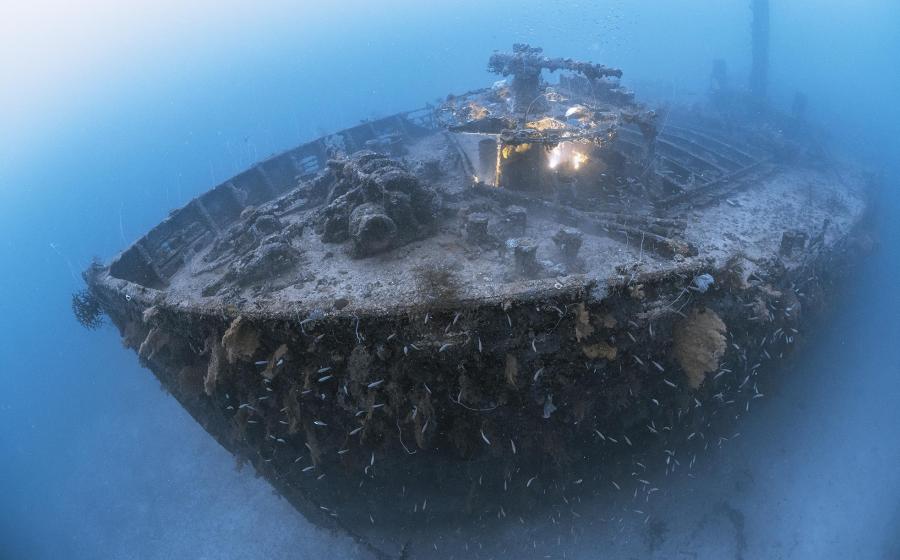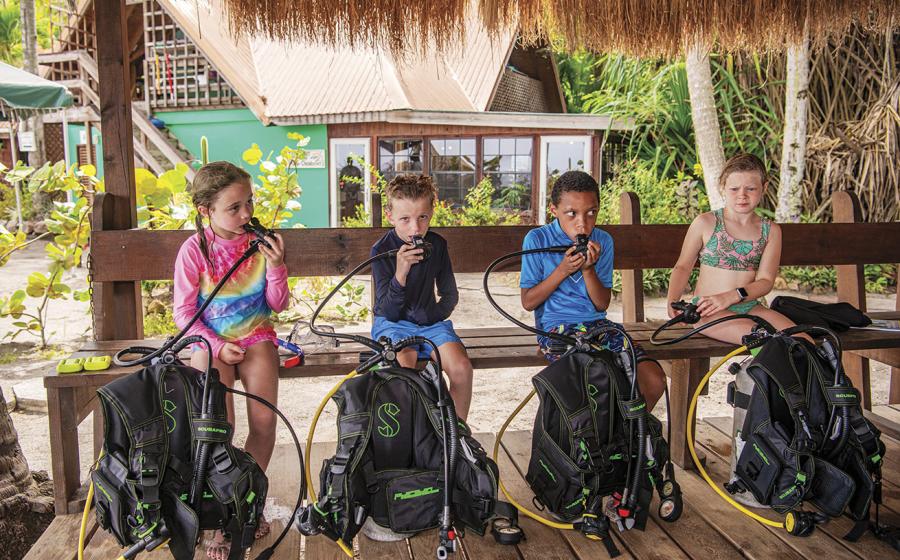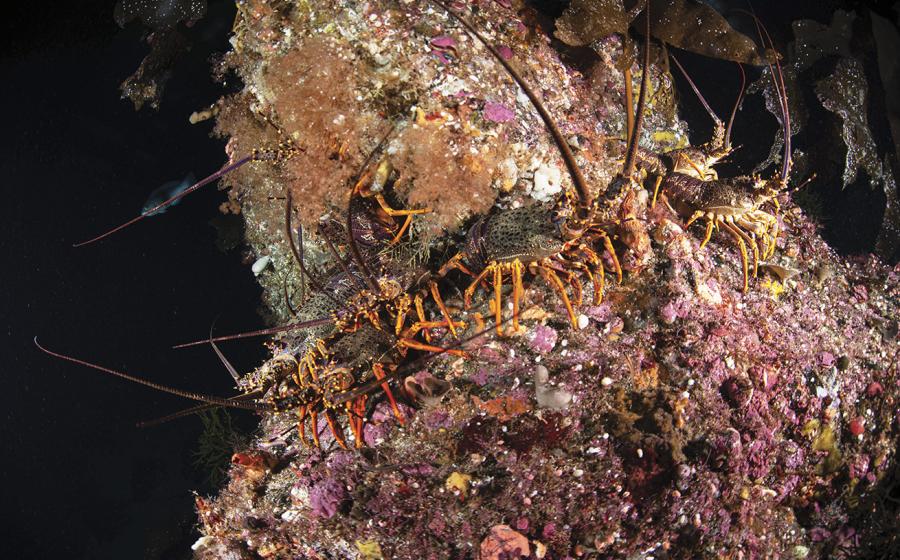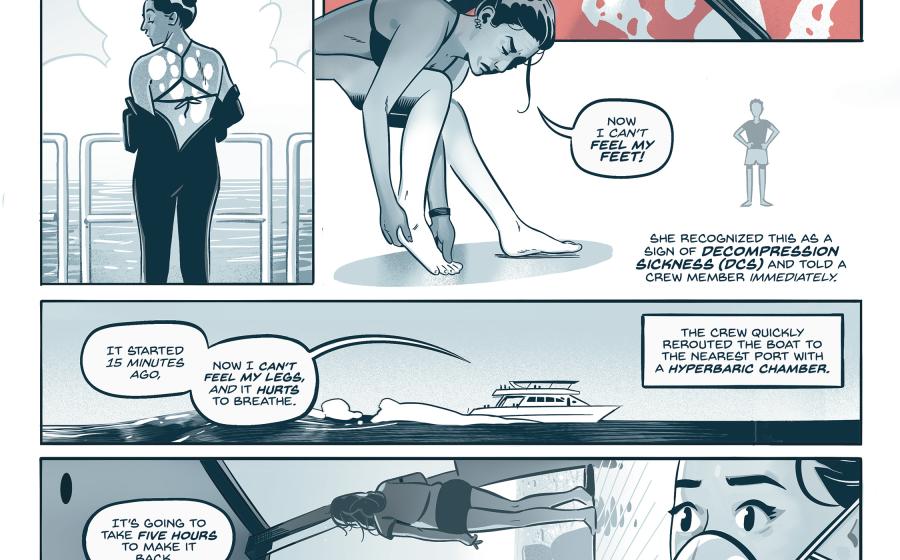Ask An Instructor - September 2007
September 2007
By Michael Ange
Q: I know it's not safe to fly immediately after diving, but what about vice versa? Is there a rule about waiting a certain amount of time before diving after a flight? If I make the five-hour flight to Cozumel and land at 10:30 a.m., can I go on a dive at 1 p.m. if I feel up to it?
A: When it comes to decompression sickness (DCS), it is decreasing ambient pressure--not increasing ambient pressure--that is the problem. In other words, you're not going to get bent by diving after flying. When you ascend to the surface after a dive or you ascend in altitude, ambient pressure is reduced, which can cause gases to come out of solution, possibly leading to decompression sickness. That doesn't happen when you go the other direction.
The most important consideration for diving after flying is making sure you're well-hydrated. Dehydration is the single biggest risk factor for DCS, and dry air in a commercial aircraft at high altitude can dehydrate you dramatically. Skip the soft drinks, drink water and lay off the alcohol if you plan to dive the day of your flight. One dive doctor recommends this hydration rule of thumb for flying: Drink between one-quarter and one-third of a liter of water for every hour you're in the air before diving.
Q: I am about to have total shoulder replacement surgery and am concerned about donning and doffing my BC with a tank attached. I've heard about lightweight composite tanks and think they might be easier for me to handle after my surgery. What do you think?
A: There are at least two manufacturers offering DOT-approved composite cylinders in the United States: Luxfer and Worthington. A dealer for either of these companies should be able to help you out. However, let me mention that this may not be the panacea it seems. These tanks are lightweight, but that means they are extremely buoyant. Divers using composite tanks say that the lead they have to add to their weight system offsets the weight savings offered by the tanks. The weight offset may work well for you if it moves the stress from your shoulder to your waist, but be sure to check the cylinder's volume and buoyancy specs before you buy.
Q: I love taking a hot shower or getting in a hot tub after getting chilled while diving in cool water. But I've heard that it can contribute to decompression sickness. Is that true?
A: It's not a good idea to take a hot shower or jump in a hot tub immediately after diving, no matter how good it may feel. Exposure to hot water dilates peripheral blood vessels and, in most circumstances, that dilation has the effect of continuing to lower the core body temperature. Also, the physiological response to immersion in hot water after deeper dives has been shown to increase the probability of decompression sickness. Take off your wetsuit or dry suit and bundle up under a heavy towel or warm coat instead.
Q: My wife and I recently had a great vacation experience with one exception. Our planned leisurely exploration of the reef turned into a marathon swim because the divemaster never paid attention to where the members of the group were. Ultimately, we were strung out along the reef, my wife got mixed up with another group, we were unable to signal the divemaster who was well ahead of us, and we wound up all alone, surfacing well down-current of the boat. How do we tell an otherwise great operation that they have a poor divemaster?
A: Sometimes divemasters can be a bit overzealous in getting you to the right spots on the reef. Younger and inexperienced divemasters, especially, also have a tendency to assume that the divers in their charge have fitness levels similar to their own. Neither of these traits is desirable, and the divemaster should have paid attention to the members of the group and how well they were staying together during your guided tour.
If you have concerns about your fitness level or some other aspect of the dive, or if there's something specific you want to see, you should make a special point to discuss it with the dive operation's staff, or better yet, directly with the divemaster before the boat leaves the dock. Although the divemaster should be aware of all of your issues in the water, never assume that he or she will notice or understand your concerns. The best way to avoid a problem before it happens is to communicate clearly. Remember that dive briefings are two-way conversations. Not only should you feel free to ask questions during the briefing at the appropriate time, but you should voice any concerns that you feel have not been addressed appropriately.
When all else fails and you have a problem with a divemaster, it is best to mention it discreetly and tactfully to the boat captain or the dive facility manager. Never do this in front of other guests and try not to be emotional when you address the problem. While it may be best to avoid direct confrontation with a staff member, sometimes it may not be possible. Divemasters generally take great pride in their jobs and performance, so you may find it effective to quietly and calmly mention your concerns to the divemaster or perhaps just ask if the next dive could progress a little more slowly. Either way you decide to go, take a few minutes to organize your thoughts before asking the captain or divemaster to speak with you privately; then, calmly and concisely express your concerns or desires. In most cases, if you speak with the captain, he or she will either place you with another divemaster or discreetly and professionally address the issues with the divemaster.
It is also important to understand that, ultimately, you are responsible for your own safety. If you don't feel comfortable, that's the only reason you need to end a dive. In this case, when it became obvious that you could not keep up with the group or that the divemaster was inattentive, you and your buddy should have immediately terminated the dive and either surfaced or returned to the ascent point and surfaced. No matter who you are diving with, you are responsible for your own safety.
Q: I understand the importance of being well-hydrated when I dive, but I don't like the taste of water at some dive destinations. I've read that some experts discourage drinking sports drinks that claim to replace electrolytes. What is the real deal?
A: It's true that some experts discourage drinking some sports drinks to rehydrate during a day of diving. Jeannie Odom, M.D., an active diver, says a recent study showed that sports drinks do a very good job of hydrating the areas between the cells in the body. However, the salts in the drinks have a tendency to draw water out of the cells themselves, so while the body may be full of fluids, at a cellular level, your body can actually be quite dehydrated. What the study did not address is the impact this type of cellular dehydration has on diving physiology and a diver's susceptibility to decompression sickness. In the absence of hard evidence, Dr. Odom notes that dehydration at a cellular level is not good for the body in any event, much less when actively exercising. Her recommendation is the same as a number of other medical professionals: If you like sports drinks, cut them by 50 percent with water, either by adding one ounce of water to every ounce of sports drink or immediately following every sports drink with an equal amount of water. The best advice is to drink water and avoid potential problems. Some medical professionals also recommend apple juice (without added sugar) as an alternative if you just can't handle the water.
Got a question you need answered?
E-mail it to [email protected], or write to Ask An Instructor, 6600 Abercorn St., Suite 208, Savannah, GA 31405.
September 2007
By Michael Ange
Q: I know it's not safe to fly immediately after diving, but what about vice versa? Is there a rule about waiting a certain amount of time before diving after a flight? If I make the five-hour flight to Cozumel and land at 10:30 a.m., can I go on a dive at 1 p.m. if I feel up to it?
A: When it comes to decompression sickness (DCS), it is decreasing ambient pressure--not increasing ambient pressure--that is the problem. In other words, you're not going to get bent by diving after flying. When you ascend to the surface after a dive or you ascend in altitude, ambient pressure is reduced, which can cause gases to come out of solution, possibly leading to decompression sickness. That doesn't happen when you go the other direction.
The most important consideration for diving after flying is making sure you're well-hydrated. Dehydration is the single biggest risk factor for DCS, and dry air in a commercial aircraft at high altitude can dehydrate you dramatically. Skip the soft drinks, drink water and lay off the alcohol if you plan to dive the day of your flight. One dive doctor recommends this hydration rule of thumb for flying: Drink between one-quarter and one-third of a liter of water for every hour you're in the air before diving.
Q: I am about to have total shoulder replacement surgery and am concerned about donning and doffing my BC with a tank attached. I've heard about lightweight composite tanks and think they might be easier for me to handle after my surgery. What do you think?
A: There are at least two manufacturers offering DOT-approved composite cylinders in the United States: Luxfer and Worthington. A dealer for either of these companies should be able to help you out. However, let me mention that this may not be the panacea it seems. These tanks are lightweight, but that means they are extremely buoyant. Divers using composite tanks say that the lead they have to add to their weight system offsets the weight savings offered by the tanks. The weight offset may work well for you if it moves the stress from your shoulder to your waist, but be sure to check the cylinder's volume and buoyancy specs before you buy.
Q: I love taking a hot shower or getting in a hot tub after getting chilled while diving in cool water. But I've heard that it can contribute to decompression sickness. Is that true?
A: It's not a good idea to take a hot shower or jump in a hot tub immediately after diving, no matter how good it may feel. Exposure to hot water dilates peripheral blood vessels and, in most circumstances, that dilation has the effect of continuing to lower the core body temperature. Also, the physiological response to immersion in hot water after deeper dives has been shown to increase the probability of decompression sickness. Take off your wetsuit or dry suit and bundle up under a heavy towel or warm coat instead.
Q: My wife and I recently had a great vacation experience with one exception. Our planned leisurely exploration of the reef turned into a marathon swim because the divemaster never paid attention to where the members of the group were. Ultimately, we were strung out along the reef, my wife got mixed up with another group, we were unable to signal the divemaster who was well ahead of us, and we wound up all alone, surfacing well down-current of the boat. How do we tell an otherwise great operation that they have a poor divemaster?
A: Sometimes divemasters can be a bit overzealous in getting you to the right spots on the reef. Younger and inexperienced divemasters, especially, also have a tendency to assume that the divers in their charge have fitness levels similar to their own. Neither of these traits is desirable, and the divemaster should have paid attention to the members of the group and how well they were staying together during your guided tour.
If you have concerns about your fitness level or some other aspect of the dive, or if there's something specific you want to see, you should make a special point to discuss it with the dive operation's staff, or better yet, directly with the divemaster before the boat leaves the dock. Although the divemaster should be aware of all of your issues in the water, never assume that he or she will notice or understand your concerns. The best way to avoid a problem before it happens is to communicate clearly. Remember that dive briefings are two-way conversations. Not only should you feel free to ask questions during the briefing at the appropriate time, but you should voice any concerns that you feel have not been addressed appropriately.
When all else fails and you have a problem with a divemaster, it is best to mention it discreetly and tactfully to the boat captain or the dive facility manager. Never do this in front of other guests and try not to be emotional when you address the problem. While it may be best to avoid direct confrontation with a staff member, sometimes it may not be possible. Divemasters generally take great pride in their jobs and performance, so you may find it effective to quietly and calmly mention your concerns to the divemaster or perhaps just ask if the next dive could progress a little more slowly. Either way you decide to go, take a few minutes to organize your thoughts before asking the captain or divemaster to speak with you privately; then, calmly and concisely express your concerns or desires. In most cases, if you speak with the captain, he or she will either place you with another divemaster or discreetly and professionally address the issues with the divemaster.
It is also important to understand that, ultimately, you are responsible for your own safety. If you don't feel comfortable, that's the only reason you need to end a dive. In this case, when it became obvious that you could not keep up with the group or that the divemaster was inattentive, you and your buddy should have immediately terminated the dive and either surfaced or returned to the ascent point and surfaced. No matter who you are diving with, you are responsible for your own safety.
Q: I understand the importance of being well-hydrated when I dive, but I don't like the taste of water at some dive destinations. I've read that some experts discourage drinking sports drinks that claim to replace electrolytes. What is the real deal?
A: It's true that some experts discourage drinking some sports drinks to rehydrate during a day of diving. Jeannie Odom, M.D., an active diver, says a recent study showed that sports drinks do a very good job of hydrating the areas between the cells in the body. However, the salts in the drinks have a tendency to draw water out of the cells themselves, so while the body may be full of fluids, at a cellular level, your body can actually be quite dehydrated. What the study did not address is the impact this type of cellular dehydration has on diving physiology and a diver's susceptibility to decompression sickness. In the absence of hard evidence, Dr. Odom notes that dehydration at a cellular level is not good for the body in any event, much less when actively exercising. Her recommendation is the same as a number of other medical professionals: If you like sports drinks, cut them by 50 percent with water, either by adding one ounce of water to every ounce of sports drink or immediately following every sports drink with an equal amount of water. The best advice is to drink water and avoid potential problems. Some medical professionals also recommend apple juice (without added sugar) as an alternative if you just can't handle the water.
Got a question you need answered?
E-mail it to [email protected], or write to Ask An Instructor, 6600 Abercorn St., Suite 208, Savannah, GA 31405.



